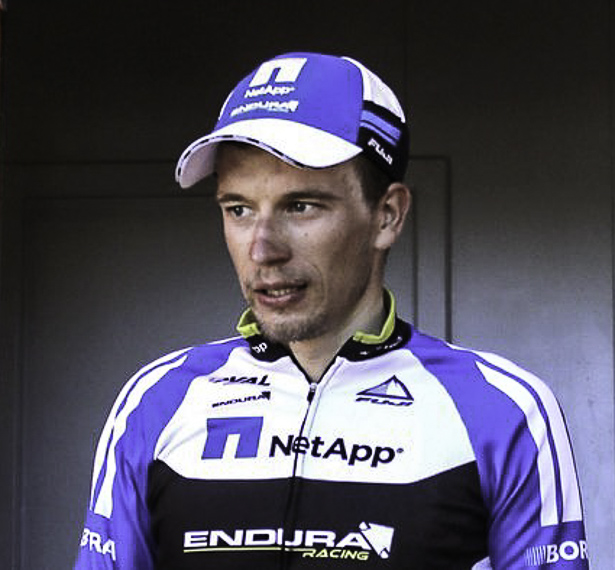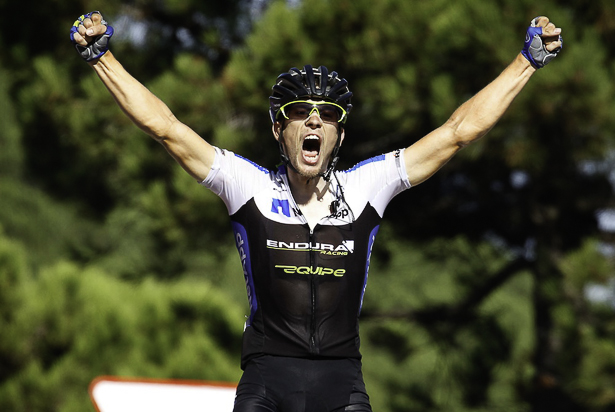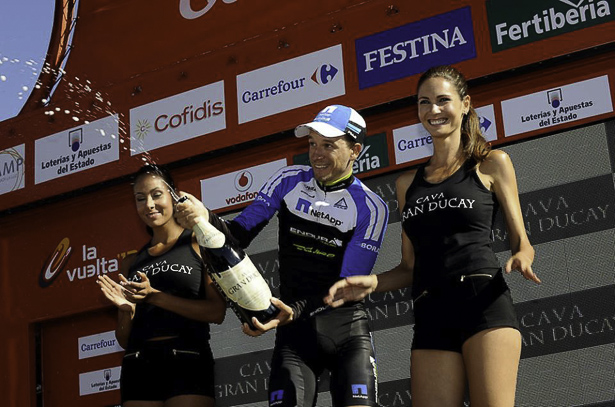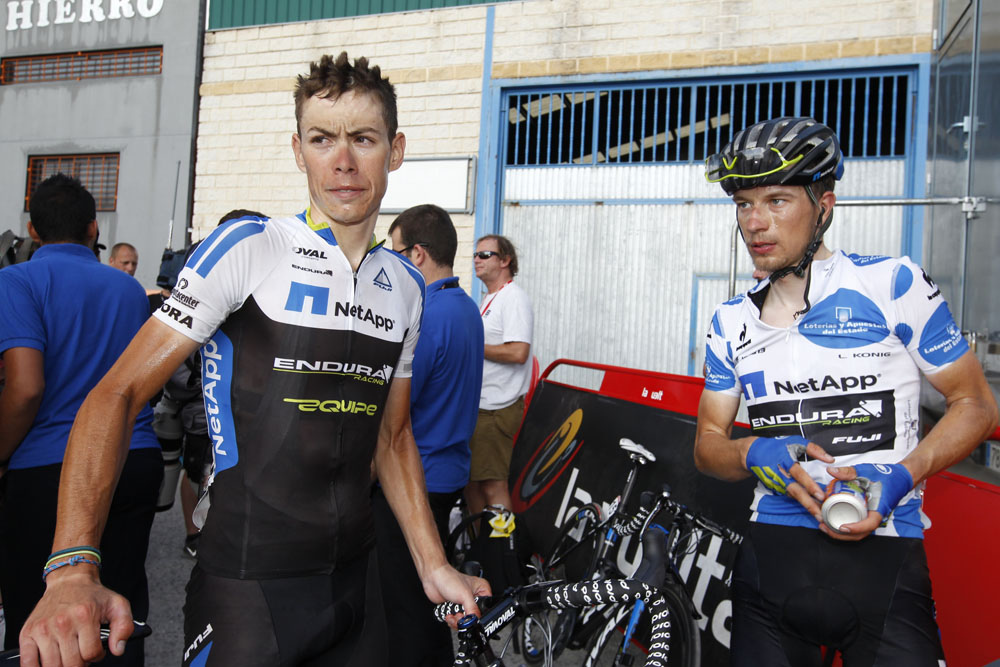
Up until Stage Eight of the 2013 Vuelta, the Czech Republic’s 25 year-old Leo Konig (NetApp-Endura) was best known as the winner earlier this year of the Queen Stage in the United States’ biggest race, the Tour of California.
But his successes are no surprise to those who knew Konig’s previous palmares; especially his GC win in the notoriously hilly 2010 Tour of Austria.
Konig turned pro with Czech Continental team PSK Whirlpool in 2006 and would stay with the team until the end of 2010.
During his time with PSK there were wins in Eastern Europe; but 2010 was the year it all came good with a stage win as well as the GC in Austria – not to mention a stage and GC win in the Czech Cycling Tour as well as stage wins in UCI races in the Czech Republic and Bulgaria.
He moved to German Pro Continental squad NetApp for 2011 and immediately posted solid results; 14th on GC in the Tour of Turkey, second on GC in the Tour of Austria, third on GC in the Tour de l’Ain and ninth on GC in the Tour of Britain.
Still with NetApp for 2012 there was a TTT win in the Coppi-Bartali, a third on GC in the Tour of Utah and stage win in the Tour of Britain.
But this year has seen him reach the highest level in the sport with stage wins in two World Tour races and sit eighth on GC in one of the World’s greatest races as the climax approaches.
And that’s not to mention a stage and GC win in the Czech Cycling Tour along the way.
VeloVeritas caught up with Leo on the Vuelta’s second rest day.

How has the rest day been, Leo?
“We slept longer, rode the bike for one hour, had lunch, tried to relax, did some interviews – it’s not really been a relaxing day but at least we got some rest.”
Stage Eight; a great win, congratulations – but why choose that stage?
“Because in the first part of the race there were only two opportunities for me before the real mountains began.
“On the first stage I targeted I was fourth (Stage Two) I put in a good attack that day but I wasn’t able to follow the best.
“I said to the team three days before Stage Eight that it was my target – and I when I look back I think I had a bit of luck going my way.”
How did it compare to winning in California?
“The moment you cross the line you don’t realise what you’ve achieved; sure, you’re happy but it’s not ‘til after the stage that you realise how big a thing it is to win a stage in a Grand Tour.
“There’s more publicity, more media – more everything!”
Have you found you’re tighter marked after the stage win?
“Of course!
“There’s been a little bit of a change of attitude towards me and the team; you can see other riders keeping an eye on me – now they know they have to look out for us.”
You rode a good time trial, too.
“It was a little bit tough, two days after my win I got sick and suffered a lot.
“I had no idea how my body would react – it wasn’t a full mountain time trial but it had a tough climb and a fast descent off it, so I was pleased enough that I did a good ride.”
Are you over the sickness, now?
“I can’t say that I’m fully recovered but I feel better every day, I can feel that my body is responding positively.
“Stage 14 in the cold and the rain and the long stage 15 were very fatiguing – but after today’s rest day I think I’ll recover better and better.
“It’s interesting to see how your body reacts in these situations.”

What have been the longest races you’ve ridden prior to the Vuelta?
“I’ve ridden the Tour of Portugal and the Qinghai Lakes in China – both ten day races.
“I think that when I consider that I’ve been sick and there are days when my body and legs weren’t good I can’t complain about where I am; and I think I’ll be good in this third week.”
What were the toughest races you’ve ridden prior to the Vuelta?
“The Tour of Portugal is a tough race – and so was the Tour of Switzerland with six mountain top finishes and bad weather.
“But they’re not as hard as this – you can’t compare, you have 200 riders and every day it’s a fight if you’re riding GC, with the last 50 K always very stressful.”
How high do you think you can go on the GC?
“You can’t say – my goal was to be in the top 10 and I’m happy to keep my eighth position if possible.
“But you have good days and bad days and you can lose time – there are still some very hard climbs to come.”
Were you surprised to see Basso drop out.
“The freezing cold and wet was a big issue on that day – I was actually surprised at myself that day because I don’t like the rain and cold but I got through it OK.”
Do you ride on watts or ‘feel’ on a day like that?
“I don’t like to look at my SRM display during a race – I tape it up!
“The data is there and I’ll look at it when I need to.”
Horner?
“I read his palmarès; his best ever Tour was ninth and his best Vuelta was 20th place, so the way he’s riding is quite surprising – at his age it’s unbelievable.
“He’s a big threat to Nibali.”

Were you surprised that Nibali has started to show signs of weakness?
“No, I’m not surprised; I think it’s normal that he be tired after those three days in Pyrenees.”
Has the Media back home in the Czech Republic being keeping up with you?
“The sport is becoming more and more popular all the time – especially with Roman Kreuziger riding a good Tour de France.
“The media are devoting more and more time to it with more TV time each year.”
Will we see you in Florence for the Worlds?
“Yes, probably – the Vuelta is good preparation and then I have one race back in the Czech Republic between Madrid and the Worlds.”
And the winner is?
“Rodriguez seems to be coming back in the third week like he did in the Tour but Horner is very strong; it’s between those two and Valverde and Nibali – it might all come down to what happens on the Angliru on Saturday . . .”



